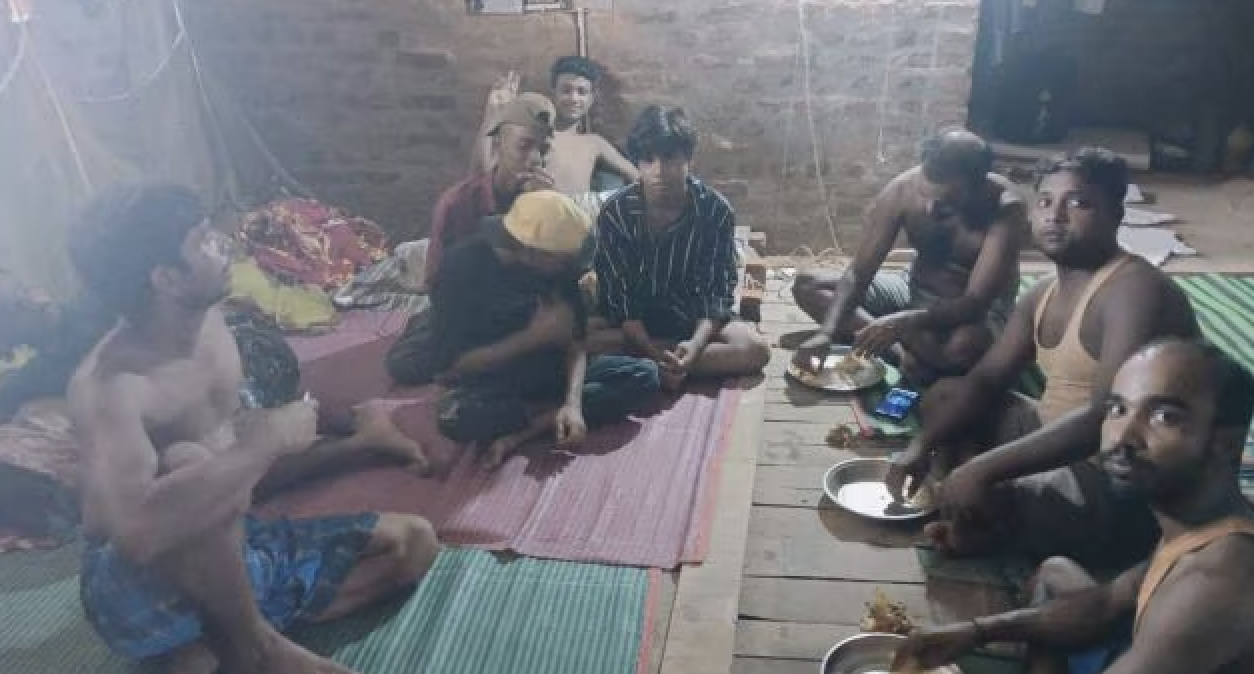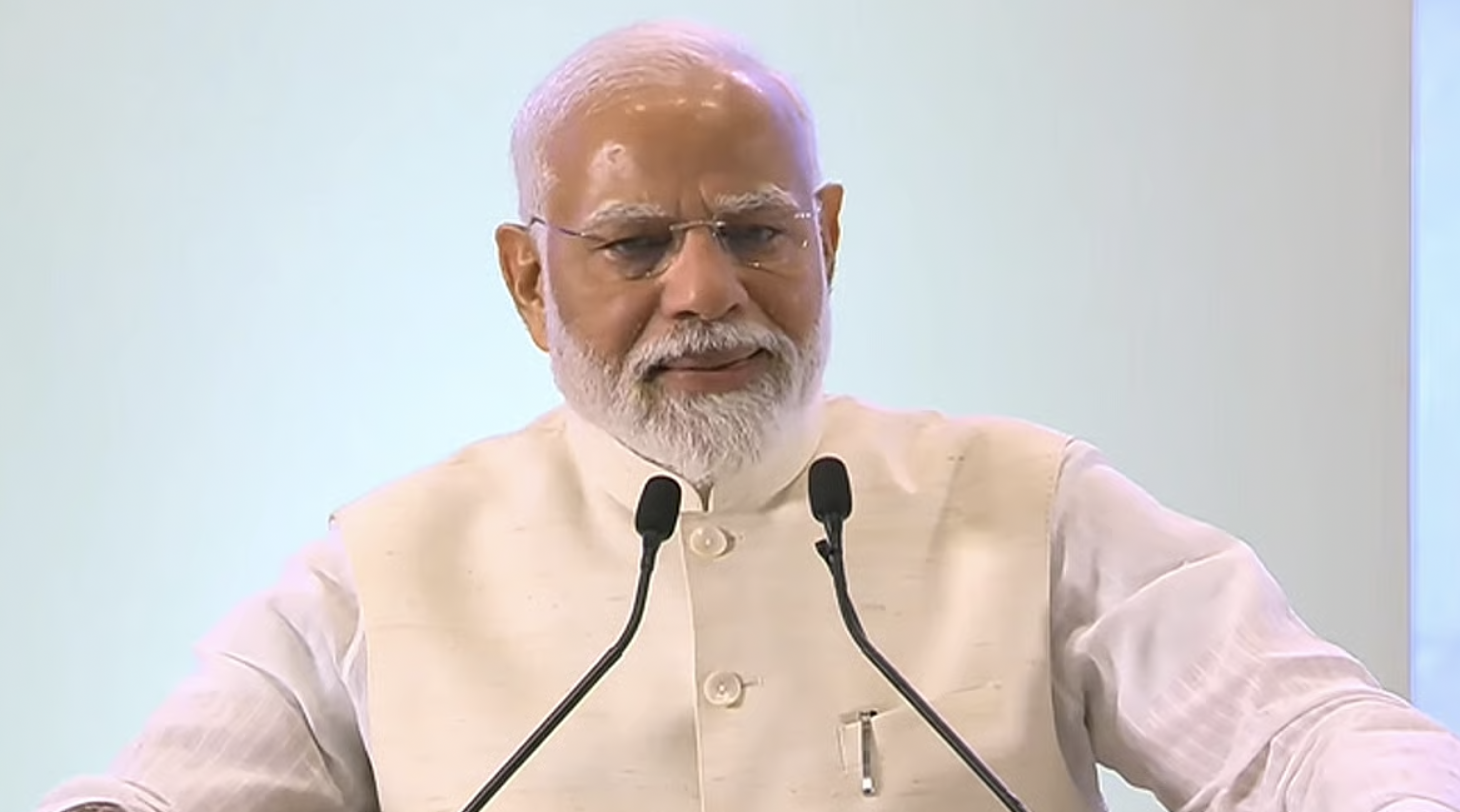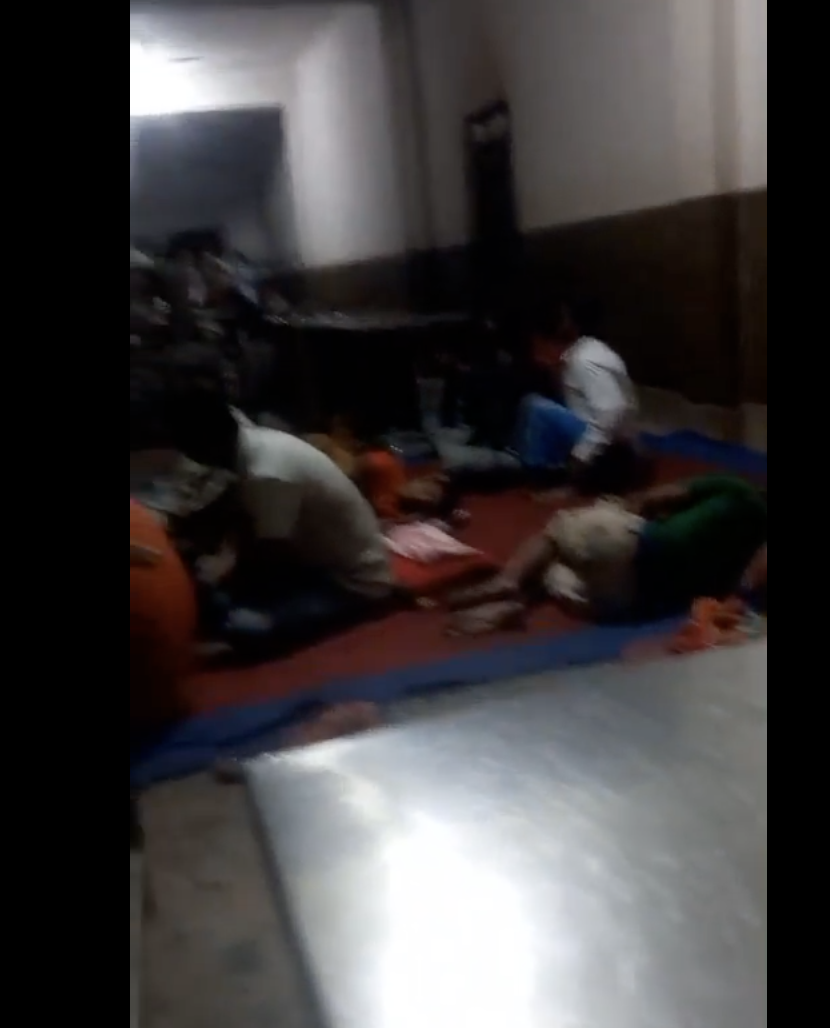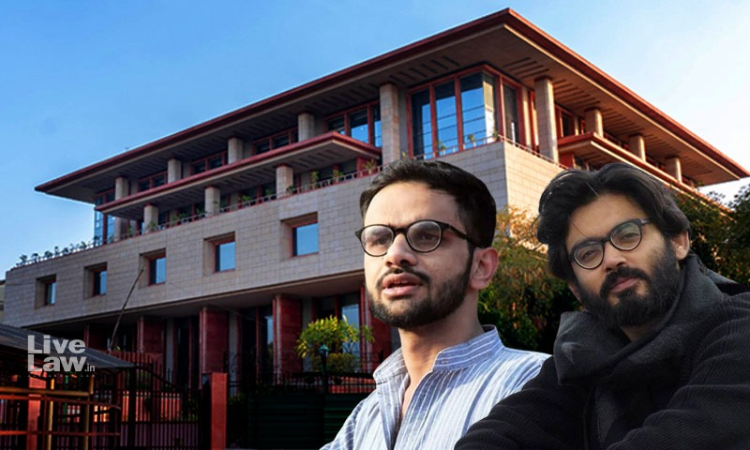
New Delhi: Files pertaining to more than 630 cases of allegations of murder, enforced disappearances, rape, and other kinds of human rights violations allegedly perpetrated by security forces on residents of Jammu and Kashmir have been lying locked up in the premises of the erstwhile Jammu and Kashmir State Human Rights Commission (JKSHRC) for nearly 27 months now, Right to Information (RTI) queries filed by transparency advocate and human rights activist Venkatesh Nayak have revealed.
Moreover, the RTI application filed by Nayak has also revealed that since these cases remained unheard as the Commission was wound up in October 2019, when the J&K Reorganisation Act came into force, a group of UN Special Rapporteurs had in July 2020 sent a special communication to the Union government, urging action on these pending cases. However, the Union government has not bothered to reply to their concerns until date.
During the course of his investigation, Nayak also learnt that no effort was made to transfer these important files pertaining to the alleged human rights violations in the state to the National Human Rights Commission. It was revealed to him that the JKSHRC, which was the custodian of these files, had handed them over to the Law Department. However, the Law Department only acknowledged that these files were lying locked up in the commission’s premises and did not divulge any information about their transfer.
Reacting to this, Nayak said, “Till date, there are no transitional provisions with regard to shifting of cases filed under the State’s HR Act to the NHRC for disposal under the Central HR Act.” He admitted that he has not filed an RTI with the NHRC as yet to find out their role as he “did not have anything to depend upon to ask them questions”.
Therefore, in view of these developments, Nayak said, “justice for the complainants has remained locked up in the erstwhile JKSHRC’s premises for more than two years (or 27 months).”
‘Why is Jammu MP, also Union minister, silent on issue?’
Nayak has also questioned the mysterious silence of Union minister and Jammu MP Jitendra Singh in this issue, which concerns human rights in his state. “After implementing the J&K Reorganisation Act the minister for Department for Personnel and Training (DoPT), who is an MP from Jammu, made a false claim that the Government had brought RTI to J&K finally, ignoring the fact that J&K had a much stronger RTI Act of its own since 2009. However, he and his counterparts in the Union home ministry have remained silent about the fate of these pending human rights cases in J&K,” said the transparency activist.
He added that the issue has also not been raised in parliament yet. “To the best of my knowledge, no question has been raised on the floor of parliament, on this issue, till date. If this is the attitude towards people in J&K how will peace be achieved ever? Peace without justice is the peace of a graveyard,” Nayak said.
RTIs were filed to learn about the fate of complaints
Nayak said he had filed the RTI applications to find out about the fate of the complaints filed before the JKSHRC after it was wound up in October 2019. He said after parliament approved the bifurcation of the erstwhile state of J&K into two Union Territories in August 2019, the J&K Reorganisation Act, 2019 repealed a number of laws enacted by the erstwhile state assembly, including the J&K Protection of Human Rights Act under which the JKSHRC was functioning.
After JKSHRC was wound up and following the change of status and bifurcation of J&K, the Central Protection of Human Rights Act, 1993 was made applicable to the union territories of J&K and Ladakh. He said the J&K Reorganisation Act did not provide for any transitional provisions to protect the complaint cases pending before the J&KSHRC from abatement at the time of its winding up.
Thereafter in mid-2021, it was reported that despite the local Law Commission recommending the establishment of a separate HRC for J&K, no action was taken in the matter.
UN Special Rapporteurs expressed concern
Prior to this, in July 2020, a group of UN Special Rapporteurs urged the Union government to take action on over 630 cases of human rights violations and other crimes allegedly perpetrated by the security forces in J&K. The communication asked how the pending cases will be dealt with.
The report read: “Information received concerning the sudden closure of the Jammu and Kashmir State Human Rights Commission (SHRC) in October 2019 which has currently left the people of the region with limited legal recourse to seek justice for potential human rights violations committed against them including enforced disappearances, extrajudicial killings, torture and sexual violence and created uncertainty as to how pending cases will be treated.”
Nayak said these special communications are uploaded on the UN website after a period of around 60 days with or without a reply from the concerned government. He said it became clear from the documents that the Union government had not replied to the rapporteurs.
RTI was filed in November 2021
Nayak filed his first RTI application to seek details of the pending cases with the Department of Law of the Government of Jammu and Kashmir on November 10, 2021. He sought details on the total number of cases pending with the JKSHRC; if any report had been prepared by any authority or officer of the J&K government for disposal of these cases; if any report was received from the J&K Law Commission regarding them and contact details of offices dealing with the matter.
The CPIO responded on December 12, 2021 saying with respect to the total number of cases that “the records are not available in the department”. While not responding to five of the other six queries, the CPIO only provided the contact details of the officer dealing with the files and papers relating to the cases.
Nayak said when he approached this officer, who was a junior assistant in the office of the erstwhile SHRC, “He told me that he and other colleagues had worked on preparing the list of files held by the JKSHRC and had handed it over to the Law Department.”
Law department did not receive case files
Thereafter, in his first appeal, Nayak demanded full disclosure of the information sought by him in the RTI application. However, in its reply, the First Appellate Authority (FAA) of the Law Department only reiterated the CPIO’s reply.
However, the department added, “All the records of the erstwhile State Human Rights Commission were locked in a designated room duly sealed at the office of the erstwhile SHRC (Old Assembly Complex), Srinagar.” Further, the reply said although it was provided in the government order that “the record of the Commission shall be handed over to the Department of Law, Justice and Parliamentary Affairs but formally no such record was received as yet” by the department.
Nayak then filed another query with the J&K Home Department about the pending cases but it only transferred the application to the Law Department, whose CPIO then cited his earlier reply and disposed of the application.
‘Why were JKSHRC cases not transferred to NHRC?’
In view of the developments, Nayak said when J&K’s status was changed, the DoPT worked with the Central Information Commission (CIC) and got the appeals and complaints pending before the J&K State Information Commission transferred to Delhi. These cases were then disposed of by the CIC one by one.
However, he said, “Unfortunately, neither the J&K government nor the Union government have acted with any degree of urgency with regard to the pending human rights cases which are far more serious in nature.”
“Till date, there are no transitional provisions with regard to shifting of cases filed under the State’s HR Act to the NHRC for disposal under the Central HR Act,” he added.
Nayak added, “The purpose of bodies like human rights commissions is to provide an avenue independent of the government for redressing complaints of violations of human rights. If such bodies also fail the people they are meant to serve, where will complainants go?”
This story first appeared on thewire.in






